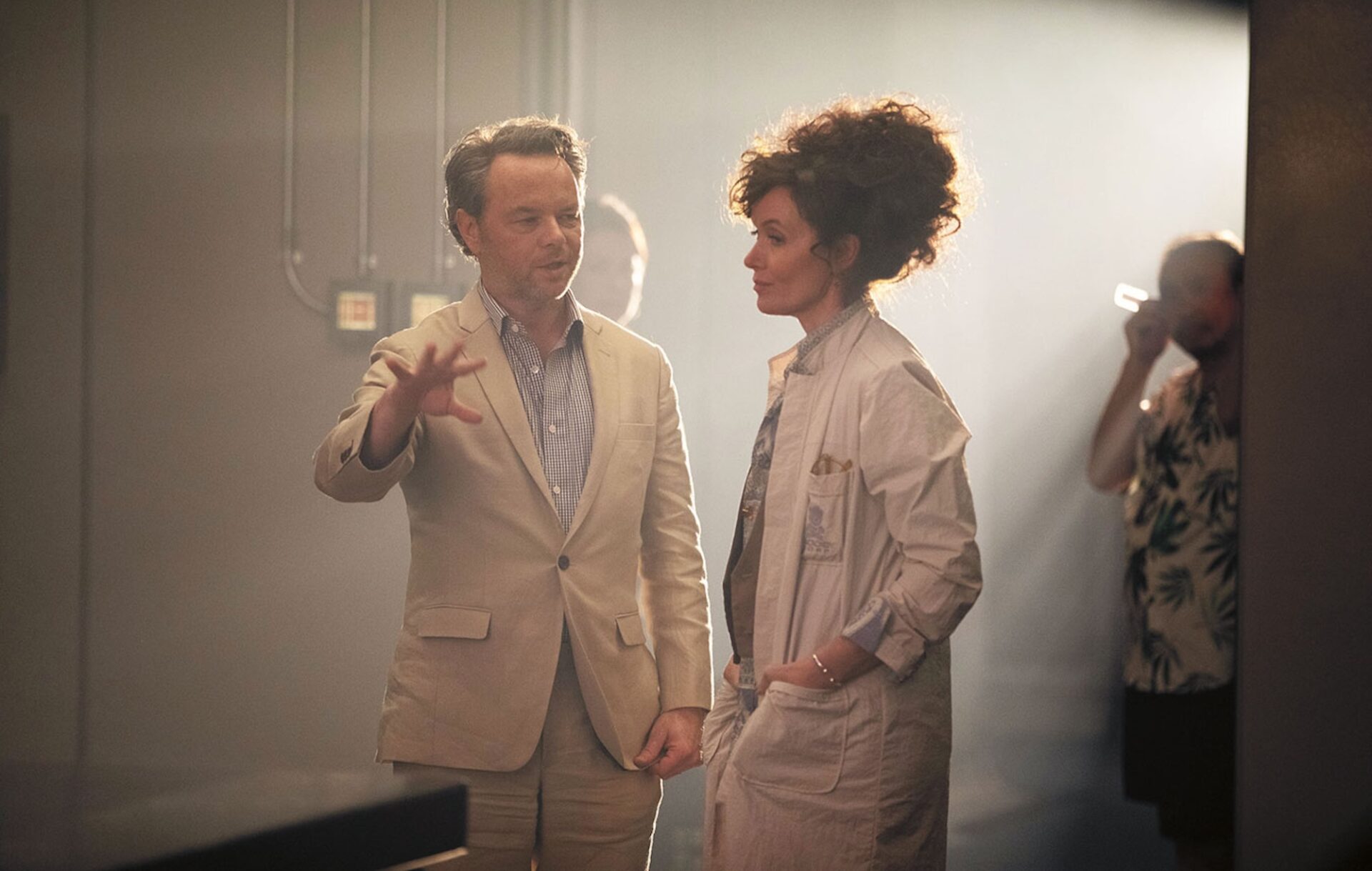‘Alien: Earth’: The exacting art of Noah Hawley
One of TV’s most distinctive and surprising creators tackles a classic

When a director arrives at a filming location, they have a lot of important tasks before the real work can begin. Department heads to consult. Actors to prep. Schedules to lock. When Noah Hawley got to Bangkok to direct the first episode of Alien: Earth, he also had to have suits made. “One of the first things I did upon landing was go to a tailor and work up, not a full wardrobe, but a way, through linen and cotton, to try to manage the heat, in a way that was the most stylish and comfortable,” explains Hawley, the always nattily dressed Emmy-winning creator of Fargo and Legion.
The bespoke wardrobe serves two purposes. One is that Hawley, 58, believes in dressing for the part when that part involves leadership. “We can get in trouble as artists who are also managers when we don’t understand the power of symbols,” he says. “The boss looks like the boss. No good comes from ‘I’m just like you.’”
The other purpose speaks more to the artistic side. “He’s got an aesthetic point of view on the world,” says Hart Hanson, who gave Hawley his first regular TV job, writing for the Fox crime drama Bones. “That’s the director part of him.”
Hawley, fittingly, describes his work as “artisanal on some level. Not to be obnoxious about it, but it is. You do have to do it by hand, and every element of it has to be managed.” That approach has given him a paradoxical niche as a storyteller who specialises in adapting other people’s material — often from big franchises, or properties that would seem to defy adaptation — in ways that feel
surprising and somehow original.
First, there was Fargo, which for five seasons has managed to feel true to the spirit of the dark, comic crime masterpiece by the Coen brothers — among the most idiosyncratic of modern filmmakers — without playing as a shameless copy. Then there was Legion, an X-Men spinoff about the mentally ill son of Professor X, which is perhaps the strangest non-David Lynch drama ever put on TV.
Now, he’s running Alien: Earth (13 August on Disney+), which is part of a more flexible franchise that in the past has been brought to life by distinct directors including Ridley Scott, James Cameron and David Fincher.
It’s a strange role Hawley has carved for himself, especially since his career began in books, where he has mostly written non-genre fiction. “I pride myself on originality,” he says in the Austin office of his production company, 26 Keys, leaning on a pillow embroidered with the names of Fargo series five characters. “So it’s a fascinating thing to have this niche reinventing classic films. But so far, I’ve been allowed to do it, as a real act of reinvention.”
Throughout the run of Fargo, Hawley has pitched ideas that would seem to have no business in a crime show, like repeated UFO appearances in the second season. Somehow, in context, they make sense. When Billy Bob Thornton’s hit-man character attacks a mob outfit in the first season, the massacre is shot from outside of the building, with only fleeting glimpses of the violence; Hawley felt it was the best way to avoid things becoming either too silly or too gory for the series’ delicate tone.
“The single most difficult thing about working with Noah is he’s got so much going on in his head, and you want to bring it all out,” says Bob DeLaurentis, a TV veteran who has worked with Hawley on multiple series, including The Unusuals, Fargo and Alien: Earth. “He thinks in unexpected ways.”
With Alien: Earth, Hawley is making a TV show on the scale of a feature. He considers the first two Alien films among the best science-fiction movies ever made, with Alien also doubling as the best horror movie and Aliens as the best action movie. “My goal,” he says, “was always to try to give the audience a return to the feeling that they had when they watched those two movies. How do I recreate that feeling without repeating what they did?”
To that end, he went down two intertwined paths for a story set at roughly the same time as Alien. His favourite part of that film was the reveal that Ian Holm’s Ash was secretly an android. He leaned into that with a story about a tech mogul devising a way to put human minds into synthetic bodies, starting with a group of seriously ill children — led by Sydney Chandler’s Wendy — who are given artificial, indestructible, potentially immortal new forms. And because Hawley fears the audience has become too used to the classic Alien xenomorph, he added a variety of new extraterrestrial monsters that have been brought to Earth by another crew working for supercorporation Weyland-Yutani.
“The story is not just this evolutionary monster, who’s reminding us that we’re food,” he says, “but it’s also the AI future that’s trying to kill us. So we’re trapped between the past and the future, and there’s nowhere to go.”
The idea of children in adult bodies was one that many of Hawley’s colleagues needed a while to adjust to, but, he says, “after 20 years of doing this, I get excited at the risk. The idea that it could go horribly? That is an exciting idea for me — not necessarily for everybody.”
Taken from the August/September issue of Rolling Stone UK, out now. Subscribe to the magazine here.
